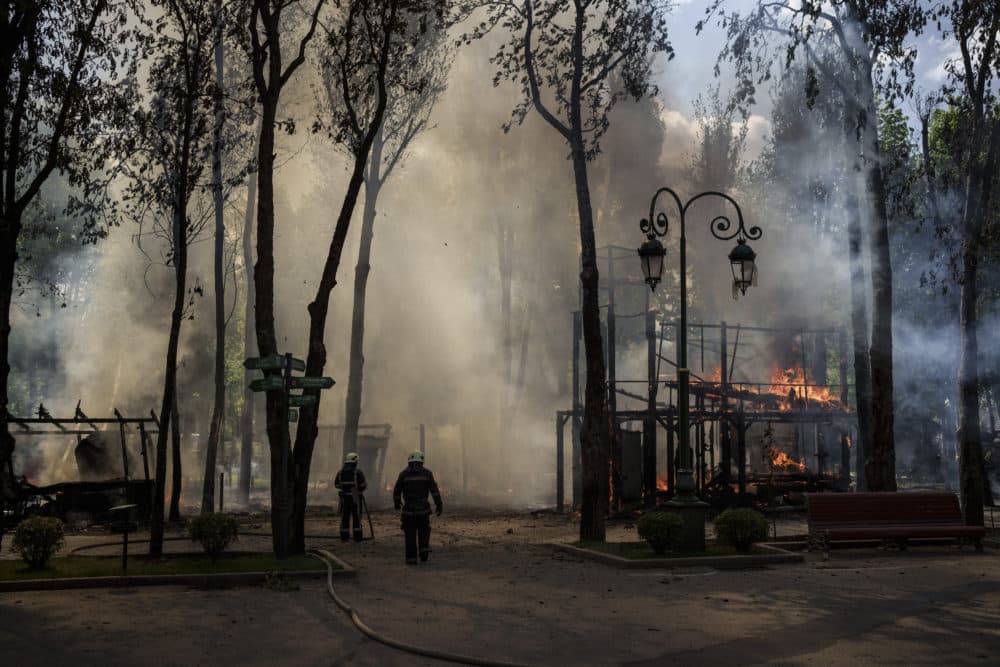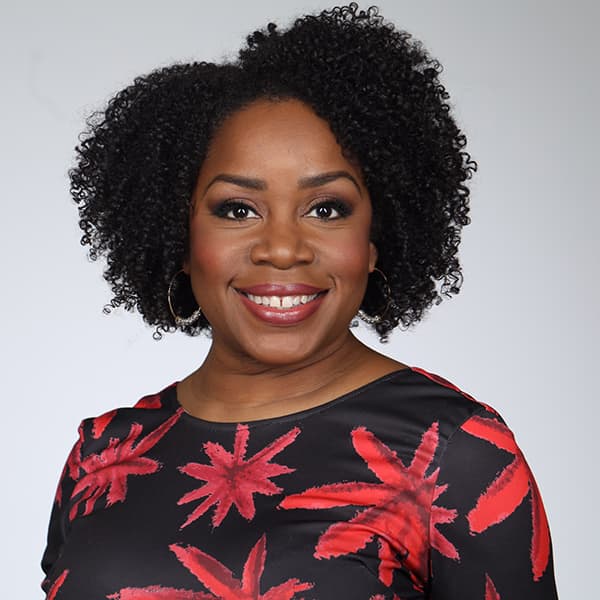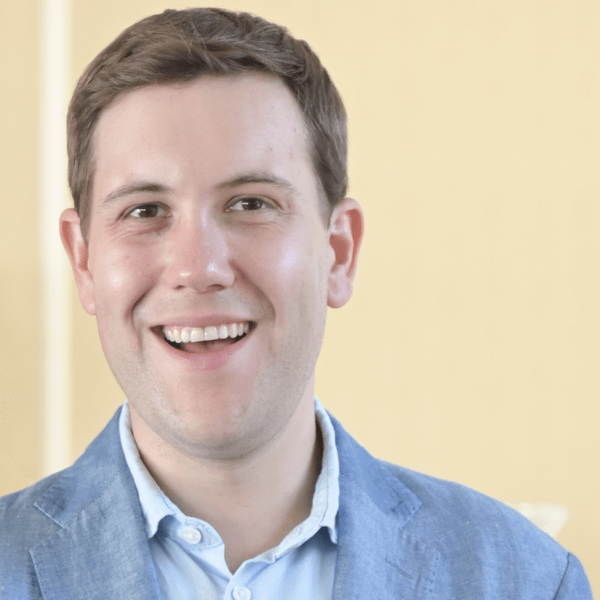Advertisement
As war drags on in Ukraine, is it time to talk compromise?
Resume
U.S. aid is helping Ukraine in its ongoing battle with Russian invaders.
"It's extremely important that there is a continued stream of military support coming to Ukraine," Ivanna Klympush-Tsintsadze says. "We have to survive."
And that’s not just in Ukraine’s interest.
"Someone who tries to understand what's in America's best interest well into the future will pretty quickly conclude that you have to win the war in Ukraine," Anne Applebaum, a staff writer at The Atlantic, says.
But ongoing conflict comes with a risk.
"What is the U.S. interest commensurate with the possibility of nuclear escalation?" Steven Simon, a fellow at the MIT Center for International Studies, asks. "There really isn't one."
Today, On Point: As war drags on, is it time to talk compromise?
Guests
Anne Applebaum, staff writer at The Atlantic. Senior fellow at the Johns Hopkins School of Advanced International Studies. (@anneapplebaum)
Steven Simon, fellow at the MIT Center for International Studies.
Ivanna Klympush-Tsintsadze, a member of the Ukrainian Parliament from the opposition European Solidarity Party. Chair of the Ukrainian Parliament’s committee on integration with the European Union. (@IKlympush)
Interview Highlights
On what the end of the war in Ukraine would look like
Anne Applebaum: "Let me let me start by challenging a little bit the presentation of the war that you just gave, because it implies that there is an amount of territory we could give the Russians that would satisfy them, and that would somehow preserve Ukraine. I'm not sure that's true. As far as I can tell, the Russians have not changed their goal in Ukraine. Their goal is still to conquer the entire country. Even if they were to stop, if there were to be a cease fire for some period of time, there's no guarantee that they wouldn't continue it.
"Therefore, this is the kind of false idea, that there is some land we could give them that would somehow preserve Zelenskyy, and preserve some part of Ukraine. And there's really no evidence for that. That means that any conclusion to the war in Ukraine has to end with the Russians out of Ukraine, at least up to the borders, as they were on February the 24th. And some kind of guarantee that the war won't continue, whether that's a NATO presence in Ukraine, whether it's security guarantees of a different kind. Whatever it is, for Ukraine to remain a stable, viable state, there has to be some belief that it won't be invaded again sometime soon. And that's what victory has to look like."
On where the U.S. fits in in the Russia-Ukraine war
Anne Applebaum: “I think the difference is between people who understand Russia, and people who don't understand Russia. And people who understand that the goal of Russia is to dominate Ukraine, and eventually possibly more countries. And those who still live in a fantasy world where they believe that the Russians are nice and they're reasonable, and they will eventually see some kind of rational solution to this war. And we can go back trading with them like we used to do.
"I'm afraid that is the line between. It doesn't just run through Europe, it runs through almost every European country, and it runs through Washington as well. And the realistic, honest understanding of the war is an understanding that we now face a country that is revanchist, that seeks to expand its territory for ideological reasons, that wishes to end the American presence in Europe, that wishes to end the European Union, that wishes to undermine NATO and has a fundamentally different view of the world from the one that we have.
"And as I said, not everybody understands that. Not everybody wants to accept that. It's a very unpleasant thing to come to realize. Because it means that we have to make big changes in the way we think about Europe, and the way we think about security, and so on. But that's the fundamental difference here."
Even before February, Russia had already encroached on Ukraine in Crimea. How realistic is it to say that you can have a full deal occupation?
Anne Applebaum: “Depends on your time frame. But I mean, certainly I believe that it's possible to return to the borders of February the 24th. Yes. And to that status quo. The Ukrainians think they can do it if they have the sufficient weapons and if they have the sufficient support. ... [To] repeat again, be careful what assumptions you're making. Allowing the Russians to keep territory doesn't mean that the war will end. It doesn't mean that a deal will be done.
"It doesn't mean that Putin has given up on his goal either of occupied Kyiv or of his goals, which he mentioned a couple of days ago, reestablishing the borders of the Soviet Union, which would include at least the Baltic states and maybe Eastern Europe, maybe Poland, maybe Romania. Who knows? Even Eastern Germany. And so you have to understand what kind of a country we're now dealing with, and what its ambitions are. And the question is whether we halt those ambitions now in Ukraine, or whether we hold them later in the suburbs of Warsaw.”
What would a peace deal need to look like for it to make sense to Ukraine?
Anne Applebaum: “So as we've already discussed, it would have to come with some kind of security guarantee, whether that's a NATO presence in Ukraine, whether it's NATO membership, whether Ukraine is officially neutral but belongs to some other security institution that we create, it doesn't really matter. But there has to be a belief among Ukrainians, among potential foreign investors, among refugees, that it's worth coming back, is worth investing, is worth rebuilding the country because the war is over. And however the war ends, and wherever the border will be, that's absolutely crucial.
"And so, therefore, we need to be sure that the Russians are not going to renew their goal of eradicating the country and erasing it from the map. Or making it so unviable that it can't survive. And so that's really the bottom line. And once we do that, we will then also have achieved something else, which is that we will then have a Russia which has given up at least some of its imperial ambitions, some of its desire to recreate an empire, you know, some of its colonial attitudes towards Ukraine.”
How much time does the U.S. and its allies have left to decide what approach to take?
Steven Simon: "The meter is running. Because with every day, more of Ukraine is destroyed, its infrastructure and its people. People are dying. It started at the rate of 200 a day. So 1,400 casualties a week, civilian and military. That's going to create not just an economic problem, but a demographic problem. Setting aside for the moment, just the human tragedy of it. So, you know, I think this has to stop sooner rather than later. Also, Western, I think, interest in this conflict is going to diminish over time.
"The EU, I think, is going to have a problem sustaining the support that it's demonstrated thus far for Ukraine and in the United States. Well, you know, people will move on. The U.S. has a track record of developing a serious case of fatigue with its support for these sorts of conflicts. And the United States doesn't have a really direct interest in Ukraine, a strategic interest in Ukraine. So it's problematic. So the sooner that some negotiated settlement is achieved, the better for all concerned.”
Related Reading
The Atlantic: "The War Won’t End Until Putin Loses" — "The expression off-ramp has a pleasing physicality, evoking a thing that can be constructed out of concrete and steel."
This program aired on June 21, 2022.

